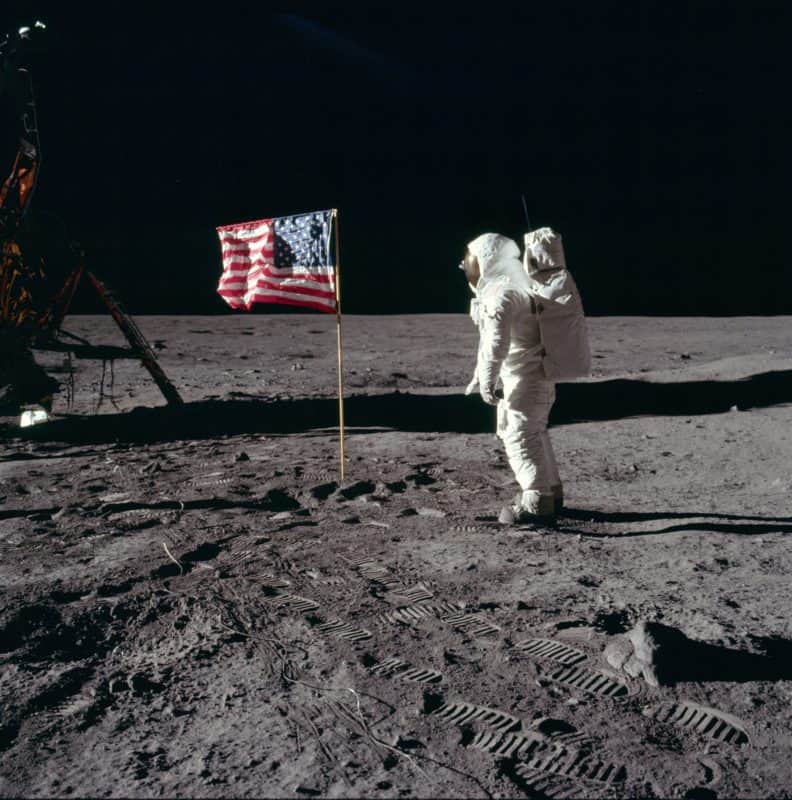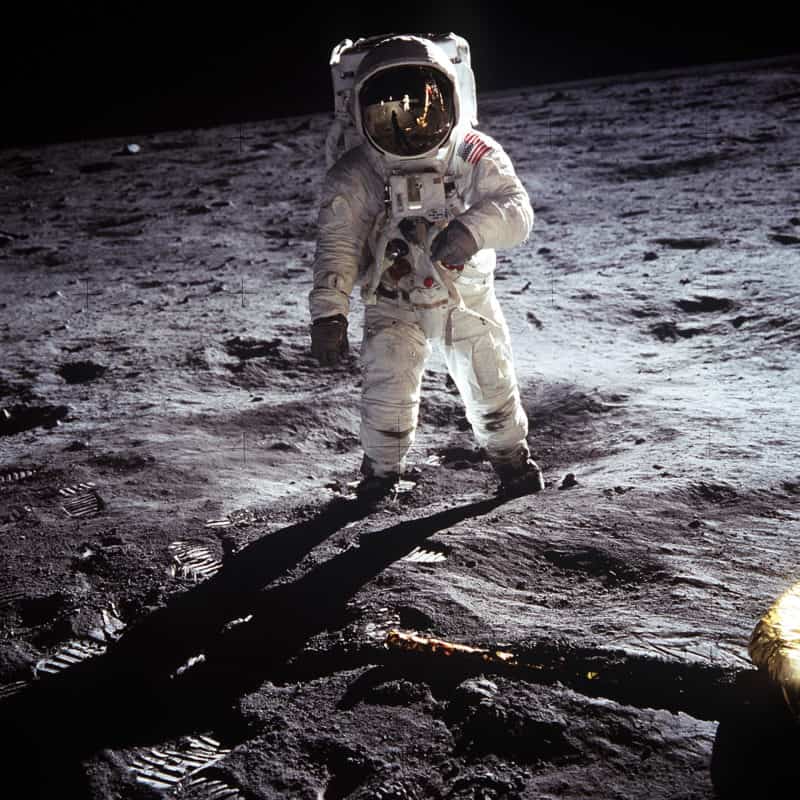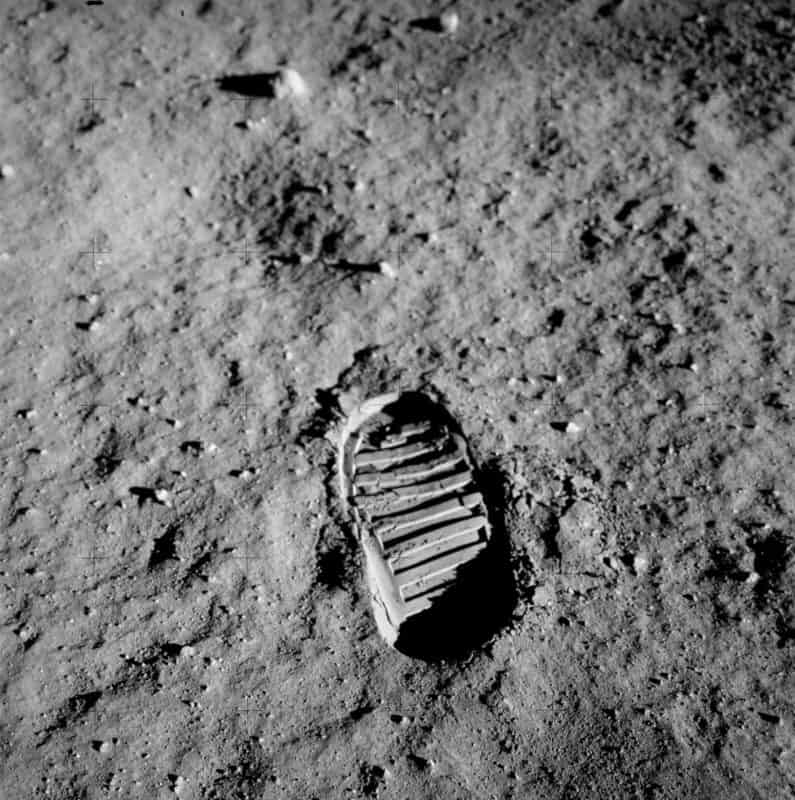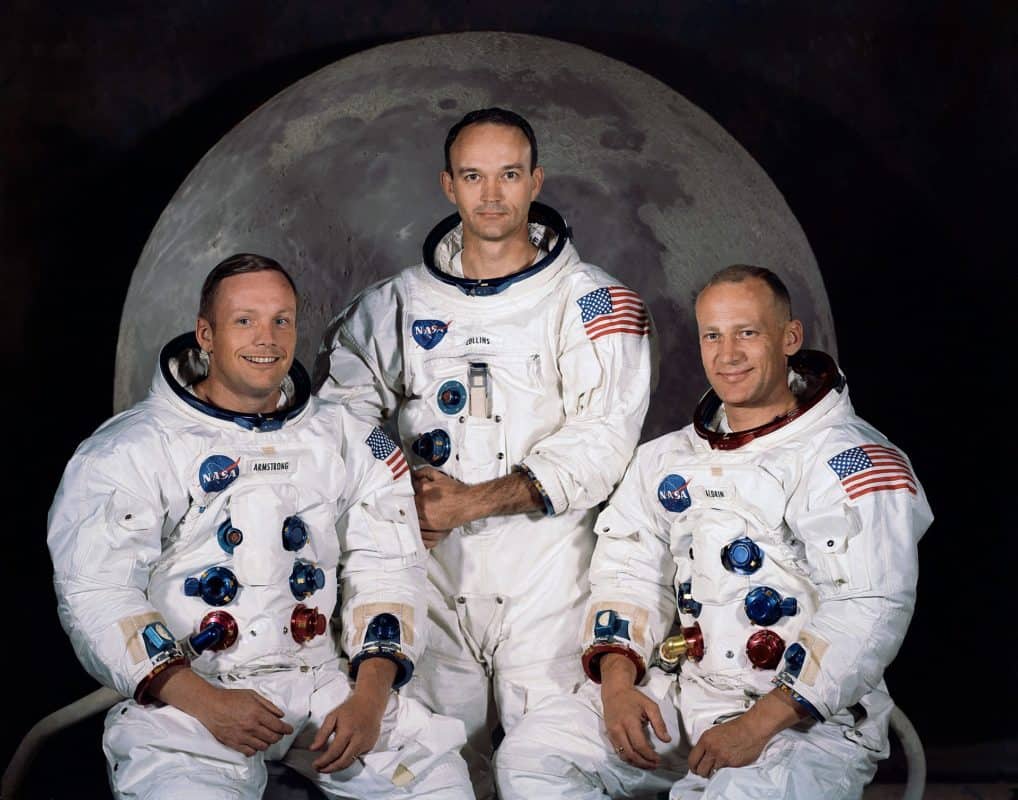
When President John F. Kennedy challenged our nation to put a man on the moon during a 1961 speech (and gave a deadline of fewer than 9 years to do what many thought was impossible), the world took notice – and America stepped up. Projects Gemini, Mercury, and Apollo were created to make Kennedy’s goal a reality, and became what Charles Fishman, author of the new book One Giant Leap, calls “the biggest nonmilitary effort in the history of human civilization.”
It culminated with one of the biggest achievements in human civilization, too: In July 1969 (five months ahead of JFK’s deadline), Neil Armstrong and Buzz Aldrin (supported by Michael Collins) became the first residents of planet Earth to set foot on the moon, as a breathless TV audience of millions watched.
As we celebrate the 50th anniversary of that momentous event, consider the almost unfathomable courage shown during the mission by the three men who made up its crew. Two years earlier, three of their fellow Apollo astronauts had died in a fire on the NASA launching pad. Onward they rocketed into space to expand man’s limits, they faced numerous unanswered questions and unknown risks. While our scientists had taken every possible precaution, we didn’t really know how good the chances were that Armstrong and Aldrin would be able to get to the moon, actually land on it, spend some time there, and then safely return. No one knew for certain that the moon’s surface would even be able to support the lunar landing module—what if it sank to unknown depths because of unstable ground? There could also have been jagged rocks beneath the dusty surface to irreparably damage it. Would Armstrong and Aldrin, even after a successful landing, be able to lift off again?

All those questions led to another precaution, an unthinkable one: At the White House, a speech was prepared for President Richard M. Nixon to deliver to a grieving nation if disaster befell our first moon-bound astronauts. Fortunately, he never had to give it.
While we now know the mission was a stunning success, all did not go smoothly. A computer malfunction led to the lunar module overshooting the intended landing spot by several miles, and Armstrong had to pilot the vehicle to what he deemed a different safe surface. When the module settled onto the moon’s surface, Mission Control technicians detected a potentially explosive pressure increase in the craft’s fuel lines, caused by ice buildup. As they scrambled to find a way to fix it, engine heat melted the ice and the problem solved itself.

In addition, our medical experts couldn’t be entirely sure the astronauts wouldn’t acquire potentially deadly infections from unknown microbes on the moon’s surface. Part of the heroes’ welcome Armstrong, Aldrin, and Michael Collins, the third member of the crew, received upon their return to Earth was the opportunity to spend nearly a month in quarantine.
At C. Forbes, Inc., we think such courage should not only be remembered but celebrated. The moon landing was one of our country’s finest moments, in a long series of fine moments, which is why we are so excited to be in a business that commemorates both the moments that stay with us and the people who made them happen.


